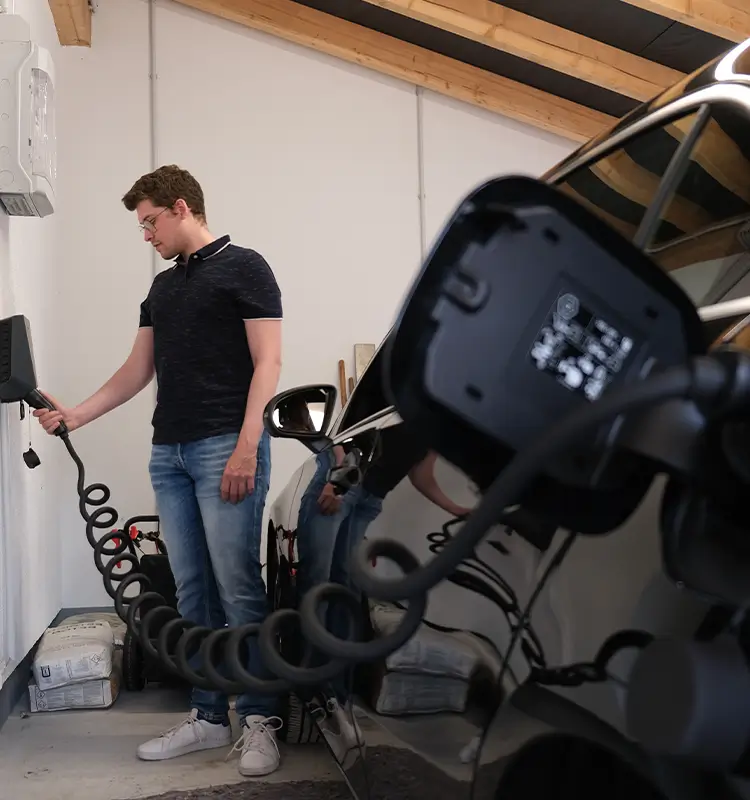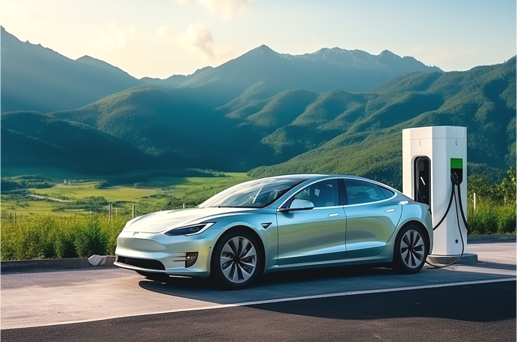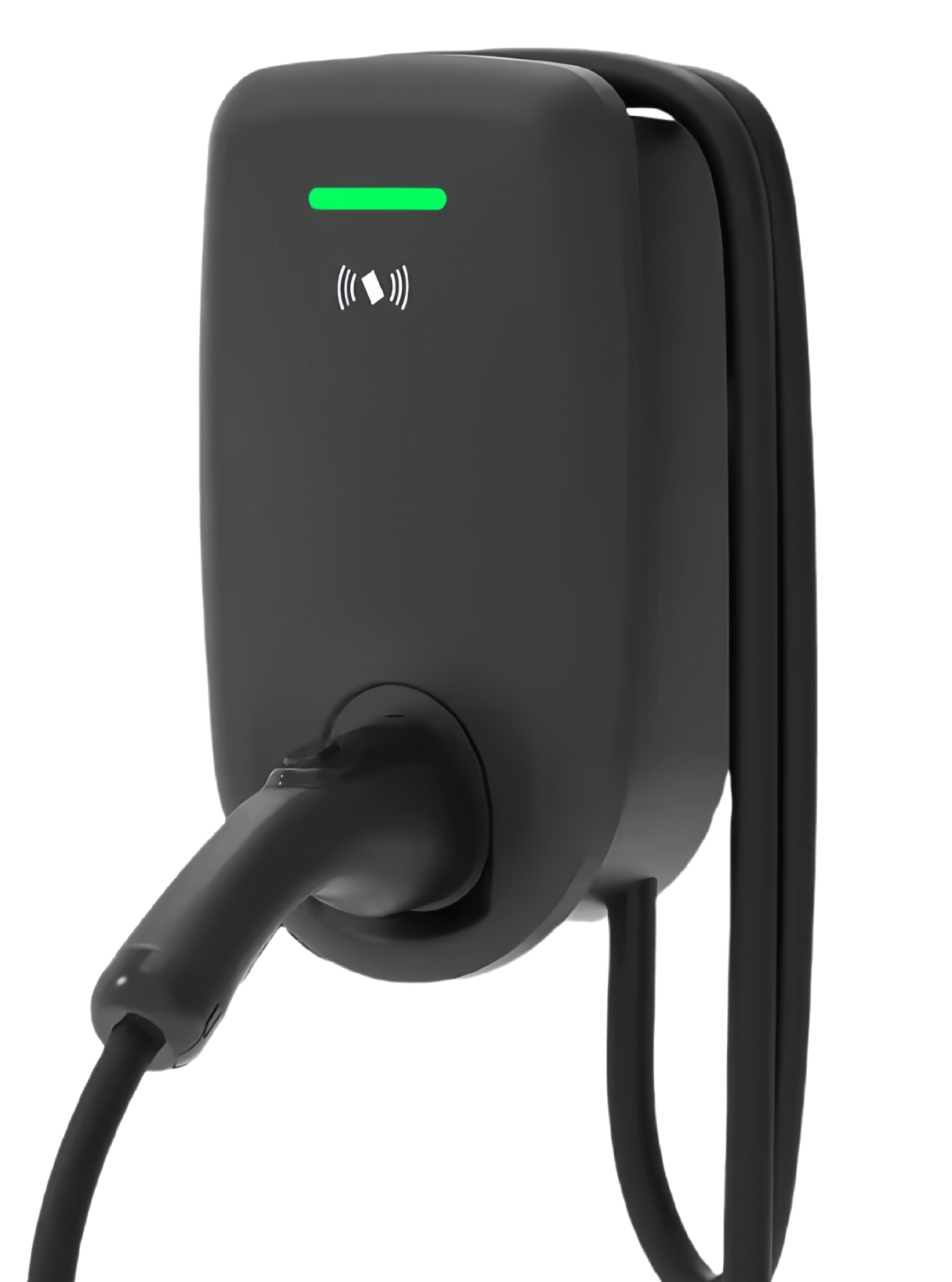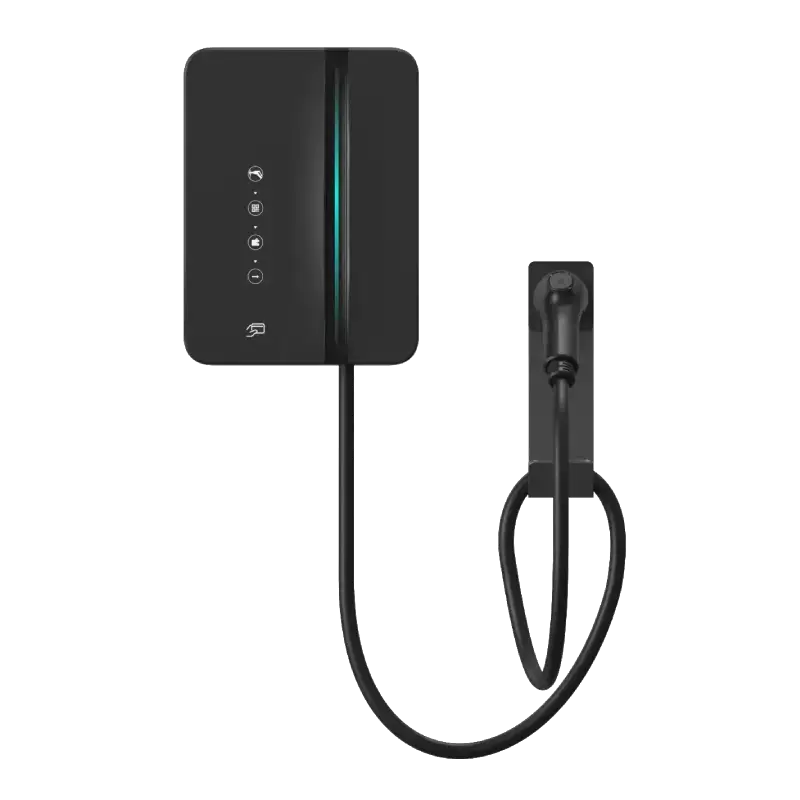Introduction: Why Commercial Charging Stations Matter for Property Owners
The rapid rise of electric vehicles (EVs) is reshaping not only transportation but also the way commercial properties are designed, managed, and valued. For property owners, asset managers, and real estate developers, installing a commercial ev charging station is no longer a matter of prestige—it is a necessity that drives business growth, sustainability, and long-term competitiveness.
In today’s marketplace, tenants, customers, and residents expect modern infrastructure that aligns with a sustainable lifestyle. Commercial properties that offer EV charging are positioned as forward-thinking destinations, attracting eco-conscious tenants, high-value shoppers, and corporate clients who prioritize sustainability. Installing recognized market leaders like Tesla charging stations, for instance, can significantly enhance this appeal by offering a trusted and widely adopted brand that drivers actively seek out. For B2B buyers, this represents a clear opportunity to differentiate assets, capture new revenue streams, and ensure resilience in a market that increasingly rewards green innovation.
By integrating a commercial charging station solution, property stakeholders can future-proof their assets, enhance customer experience, and improve return on investment (ROI). The decision is not just about providing electricity to cars—it is about aligning with broader business objectives, from attracting foot traffic to boosting occupancy rates.
This article explores how businesses can evaluate and select the right solution, focusing on practical considerations and long-term commercial value.

Understanding the Role of a Commercial Charging Station in Business Growth
A commercial EV charging station has far-reaching implications beyond energy supply. For property developers, retail landlords, and community operators, it is a tool for value creation. The strategic integration of EV charging contributes directly to business growth in several key ways.
Enhancing Property Value and Attracting Tenants
Modern tenants and clients increasingly assess properties not only on location or price but also on amenities. A property equipped with commercial EV charging infrastructure appeals to eco-conscious businesses, retailers, and residents. For example, office tenants that value sustainability are more likely to renew leases when charging solutions are available. Residential properties equipped with charging options stand out in competitive rental and sales markets, often commanding higher perceived value.
Driving Foot Traffic and Extending Customer Stay
Retail centers and shopping malls can use commercial charging stations as a magnet for customer engagement. Visitors are likely to stay longer at a property while their vehicles charge, increasing dwell time and encouraging greater spending at retail or dining outlets. For property managers, this translates directly into higher sales volumes for tenants and stronger long-term rental agreements.
Unlocking New Revenue Streams
Charging infrastructure is not just a utility but also a business model. Property owners can monetize their investment through various methods: pay-per-use service fees, subscription-based access, or integration into loyalty programs. For B2B buyers, this means transforming parking areas into profit centers. The charging service itself generates income, while indirect benefits—such as higher occupancy, premium rent, and improved tenant satisfaction—further strengthen ROI.
Strengthening Sustainability Credentials
Sustainability has moved from being a marketing buzzword to a business necessity. Many corporations must demonstrate environmental responsibility in their supply chains and operational choices. A commercial EV charging solution allows properties to align with ESG standards, qualify for sustainability certifications, and attract organizations that prioritize green infrastructure.
In short, commercial charging stations are not only about powering vehicles; they are powerful tools for driving growth, enhancing brand reputation, and generating measurable business results. Many property developers now explore ev charging station installation solution to ensure smooth deployment and long-term value creation.

Evaluating Different Property Scenarios and Needs
Not all properties have the same requirements, and the most effective charging solutions are those tailored to the unique dynamics of each site. Understanding these scenarios allows B2B buyers to select a kommerzielle Ladestation model that maximizes business value.
Shopping Centers and Retail Destinations
For retail landlords, customer experience is paramount. A kommerzielle Ladestation in a shopping mall parking lot can transform the property into a destination for high-spending, eco-conscious consumers. Extended charging sessions often mean customers spend more time dining, shopping, or exploring services. Integrating payment systems or loyalty rewards further deepens engagement.
From a landlord’s perspective, this infrastructure is more than an amenity—it is a driver of repeat visits, customer retention, and retail tenant satisfaction. By installing scalable solutions, shopping centers can align with evolving consumer expectations while building sustainable revenue models.
Office Buildings and Business Hubs
Commercial office environments face mounting pressure to provide amenities that align with employee expectations. For corporations leasing space, having access to commercial EV charging stations signals a property’s commitment to sustainability. It can also reduce friction in employee commutes, contributing to higher satisfaction and productivity.
For landlords, offering such infrastructure makes office buildings more attractive to tenants with sustainability mandates. It can also help differentiate a property in competitive urban markets, where green infrastructure is increasingly part of the decision-making process for long-term leases. Working with a trusted commercial charging station manufacturer helps ensure that office hubs receive scalable and future-ready infrastructure.
Residential Communities and Multi-Family Properties
In residential developments, particularly in urban and suburban contexts, EV charging is quickly becoming an essential service. Developers and property managers who install kommerzielle Ladestationen in residential complexes create added value for current residents while appealing to prospective buyers or renters.
For B2B buyers, the benefits are twofold: higher occupancy rates and the ability to justify rent premiums. With flexible solutions like overnight charging, time-share management, and app-based reservations, residents gain a convenient service that also strengthens community satisfaction.
Mixed-Use Developments and Commercial Real Estate Projects
Large-scale mixed-use projects require charging infrastructure that can serve a variety of user profiles—retail customers, employees, and residents. A commercial EV charging station solution designed for such environments must balance flexibility, scalability, and ease of management. The ability to monitor energy usage, apply dynamic pricing, and integrate with broader property management systems is crucial.
By tailoring solutions to these scenarios, property stakeholders can ensure they meet tenant and customer expectations while optimizing long-term ROI.

Key Considerations When Choosing a Commercial Charging Station
For B2B decision-makers, the choice of a kommerzielle Ladestation goes beyond simply selecting hardware. The decision must align with business goals, operational capacity, and user experience. Below are the primary factors to consider.
Hardware and Software Compatibility
An effective charging solution is not only about the charging equipment but also the ecosystem that supports it. Look for compatibility with open standards like OCPP, which ensures interoperability between hardware and software. Features such as smart load management allow property owners to optimize energy use, prevent grid overloads, and minimize operational costs. Remote diagnostics reduce downtime, allowing issues to be resolved without costly on-site interventions. For residential properties or smaller parking areas, 7kw electric cars charging stations are often considered the starting point for building accessible EV infrastructure.
Installation Strategy and Site Design
The location of a kommerzielle Ladestation is critical. B2B buyers should consider factors such as accessibility, visibility, and convenience for end users. A well-placed station encourages frequent usage and maximizes revenue potential. Site assessments, including power grid analysis and parking layout studies, are essential to making informed decisions.
Payment Systems and Monetization Options
Flexibility in payment is crucial for both property managers and users. A commercial EV charging solution should support multiple models—pay-per-use, subscriptions, or loyalty-based credits. Integrating options like RFID cards, credit cards, or mobile apps ensures seamless user experiences. For property owners, these systems offer versatile ways to generate income, track transactions, and manage cash flow efficiently.
Scalability and Future-Proofing
Commercial properties must plan for long-term growth. Choosing a scalable kommerzielle Ladestation ensures the system can expand as EV adoption accelerates. This future-proofing protects assets from obsolescence and positions properties as leaders in sustainability. B2B buyers should prioritize solutions that allow incremental additions without major infrastructure overhauls.
Operational Simplicity and Support
Beyond hardware and installation, ongoing support is vital. B2B buyers benefit from providers offering end-to-end services—from consultation and installation to maintenance and 24/7 technical assistance. Automated billing, real-time analytics, and remote monitoring reduce management complexity while enhancing profitability.
The Value of End-to-End Charging Solutions
For property owners and developers, investing in a kommerzielle Ladestation is not just about acquiring hardware; it is about securing a complete solution that simplifies operations and maximizes business outcomes. A fragmented approach—purchasing equipment from one supplier, integrating software from another, and outsourcing maintenance separately—creates unnecessary complexity. By contrast, an end-to-end charging solution offers a unified pathway, streamlining every stage from installation to ongoing management.
Simplified Project Management
An all-in-one model removes the burden of coordinating multiple vendors. Instead, property owners can work with a single partner that covers hardware, software integration, installation, payment systems, and after-sales service. This consolidation reduces project risk, accelerates deployment timelines, and provides a single point of accountability.
Cost Efficiency and Operational Control
B2B buyers often focus on ROI, and operational simplicity plays a direct role in profitability. With an end-to-end commercial charging station solution, property stakeholders gain access to integrated tools like automated billing, real-time reporting, and centralized control dashboards. These features minimize administrative effort, allowing managers to focus on strategic decision-making rather than daily troubleshooting.
Enhanced Customer Experience
From the end-user perspective, seamlessness matters. Tenants, shoppers, or residents expect a smooth charging experience that includes easy payment options, reliable connectivity, and consistent service. End-to-end providers ensure the user journey is optimized, increasing satisfaction and encouraging repeat usage.
Scalability Across Property Portfolios
For real estate groups managing multiple sites—whether shopping centers, office parks, or residential complexes—end-to-end solutions provide a scalable framework. Standardized systems allow for consistent operations across locations, while flexible expansion ensures properties remain competitive as EV adoption accelerates.
In today’s fast-moving market, an end-to-end commercial EV charging solution is not just a convenience; it is a competitive necessity for B2B stakeholders seeking sustainable growth.
Maximizing ROI with Smart Commercial Charging Stations
Every investment decision for a B2B buyer ultimately comes down to return on investment. The integration of a kommerzielle Ladestation is no different. However, beyond installation costs, there are numerous levers to optimize profitability and long-term value.
Unlocking Direct Revenue Streams
Commercial properties can monetize charging stations through various pricing models. Options such as pay-per-use, subscription plans, or hybrid models ensure flexibility in revenue generation. For retail and hospitality venues, charging services can even be bundled with loyalty programs or value-added packages, enhancing customer engagement while generating income.
Capturing Indirect Business Value
The true ROI of a commercial EV charging station extends beyond service fees. Properties equipped with charging infrastructure often see longer customer dwell times, higher tenant retention, and increased occupancy rates. Each of these outcomes has a measurable financial impact. For example, extended visits translate into more sales for retailers, while satisfied tenants justify premium rents in office or residential properties.
Leveraging Government Incentives and Green Certifications
Many markets offer tax credits, subsidies, or grants to offset upfront investment. Properties with certified sustainable infrastructure may also qualify for green certifications, which enhance brand reputation and appeal to eco-conscious clients. For B2B buyers, this represents both immediate financial relief and long-term marketing advantages.
Harnessing Smart Technology for Efficiency
Modern commercial charging station solutions go beyond basic electricity delivery. With SaaS integration, property owners can apply dynamic pricing, monitor energy usage, and implement load balancing to reduce operational costs. Real-time analytics provide insights into usage trends, helping managers fine-tune business strategies.
Ensuring Long-Term Value Creation
ROI is not a one-time calculation; it is a continuous process. Choosing scalable, future-ready solutions ensures assets remain competitive as the EV market grows. B2B stakeholders who adopt smart charging strategies now position themselves to capture increasing value over time, while those who delay risk losing competitive ground.
In short, profitability is not only achievable but also sustainable with the right commercial EV charging strategy. In medium-sized commercial settings, deploying 7-22kw electric vehicle charging stations allow property owners to balance cost, efficiency, and customer demand.

Leveraging Technology and Strong Operational Capabilities
The most successful commercial charging station solutions combine robust technology with operational excellence. For B2B buyers, this integration ensures that charging infrastructure is not only functional but also resilient, efficient, and profitable.
SaaS Platforms and Cloud Integration
Modern property management demands real-time visibility. SaaS platforms linked to charging stations provide dashboards that track energy use, revenue, occupancy patterns, and system health. This data empowers managers to make informed decisions, optimize resource allocation, and improve ROI.
Smart Load Management
One challenge with EV charging is balancing electricity demand with existing grid capacity. Advanced load management systems distribute power intelligently across multiple chargers, preventing overloads and minimizing utility costs. For large properties such as office complexes or shopping malls, this feature is essential for operational stability.
Remote Diagnostics and Reduced Downtime
A key advantage for B2B buyers is the ability to minimize disruptions. Remote monitoring and diagnostics enable operators to resolve most technical issues without on-site intervention. This not only reduces maintenance costs but also ensures stations remain operational, preserving revenue streams and customer trust.
Automated Billing and Analytics
Operational excellence also means financial clarity. Automated billing systems reduce administrative burden by processing payments instantly, generating invoices, and producing financial reports with minimal effort. Real-time analytics provide insights into customer behavior, peak usage times, and energy efficiency, enabling property owners to fine-tune strategies.
Hardware Customization and OCPP Compatibility
Properties vary in scale, user profile, and energy requirements. A flexible kommerzielle Ladestation solution should support custom configurations, from basic AC units to rapid DC stations. OCPP compatibility ensures interoperability with a wide range of platforms and hardware, protecting investments against future technological shifts. Larger retail centers and high-demand locations may prefer a 22kw electric car charger stations to support longer stays and generate additional revenue opportunities.
When strong technology meets robust operational support, property owners gain not just charging equipment but a reliable business engine. This synergy defines the next generation of commercial EV charging solutions for B2B stakeholders.
Schlussfolgerung
As electric mobility continues to expand globally, the decision to invest in a kommerzielle Ladestation is becoming a defining factor for property competitiveness. For B2B buyers—whether managing retail centers, office buildings, residential communities, or mixed-use developments—the benefits are clear: stronger tenant retention, higher foot traffic, new revenue streams, and long-term asset value enhancement.
End-to-end solutions simplify project execution, while smart technologies ensure scalability and efficiency. By adopting an integrated strategy, property stakeholders not only meet the immediate needs of EV drivers but also align with broader business objectives such as sustainability, profitability, and customer satisfaction.
The question for property owners is no longer whether to adopt charging solutions, but how quickly they can act. Those who embrace the shift now will secure a first-mover advantage, positioning their properties as future-ready destinations for tenants, shoppers, and residents alike.
For decision-makers ready to take the next step, the path forward is clear: explore comprehensive, scalable, and intelligent commercial charging station solutions that deliver measurable business value today and resilience for tomorrow.



